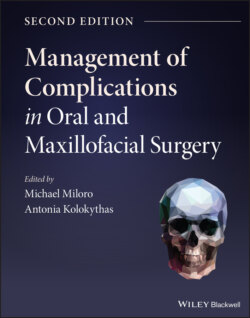Читать книгу Management of Complications in Oral and Maxillofacial Surgery - Группа авторов - Страница 44
PSYCHIATRIC AND EMOTIONAL COMPLICATIONS
ОглавлениеPatient anxiety is the most commonly encountered emotional complication in ambulatory anesthesia, but patients may also experience euphoria, delirium, agitation, or hallucinations. Children and the elderly are most at risk, and certain anesthetic medications such as ketamine have been associated with a higher likelihood of emotional or cognitive disturbance. These types of complications may be distressing to the patient but are typically self‐limiting and mild. Preventing patient injury due to agitation or delirium is the primary goal of management, and close supervision remains the best strategy.
Many anesthetic medications (particularly the benzodiazepines) produce some degree of amnesia. Amnesia is often an intended effect of anesthesia and therefore not a complication per se, but the practitioner should be aware that any instructions or information given to a patient may be affected by amnesia or cognitive distortion. Patients may not be able to distinguish between dreaming and events that actually occurred during anesthesia, leading to inappropriate associations with the anesthetic experience. It is not known how often this may occur as a complication of ambulatory anesthesia, but whenever medications are given that alter a patient's consciousness and perception there is a risk of cognitive and emotional distortion.
